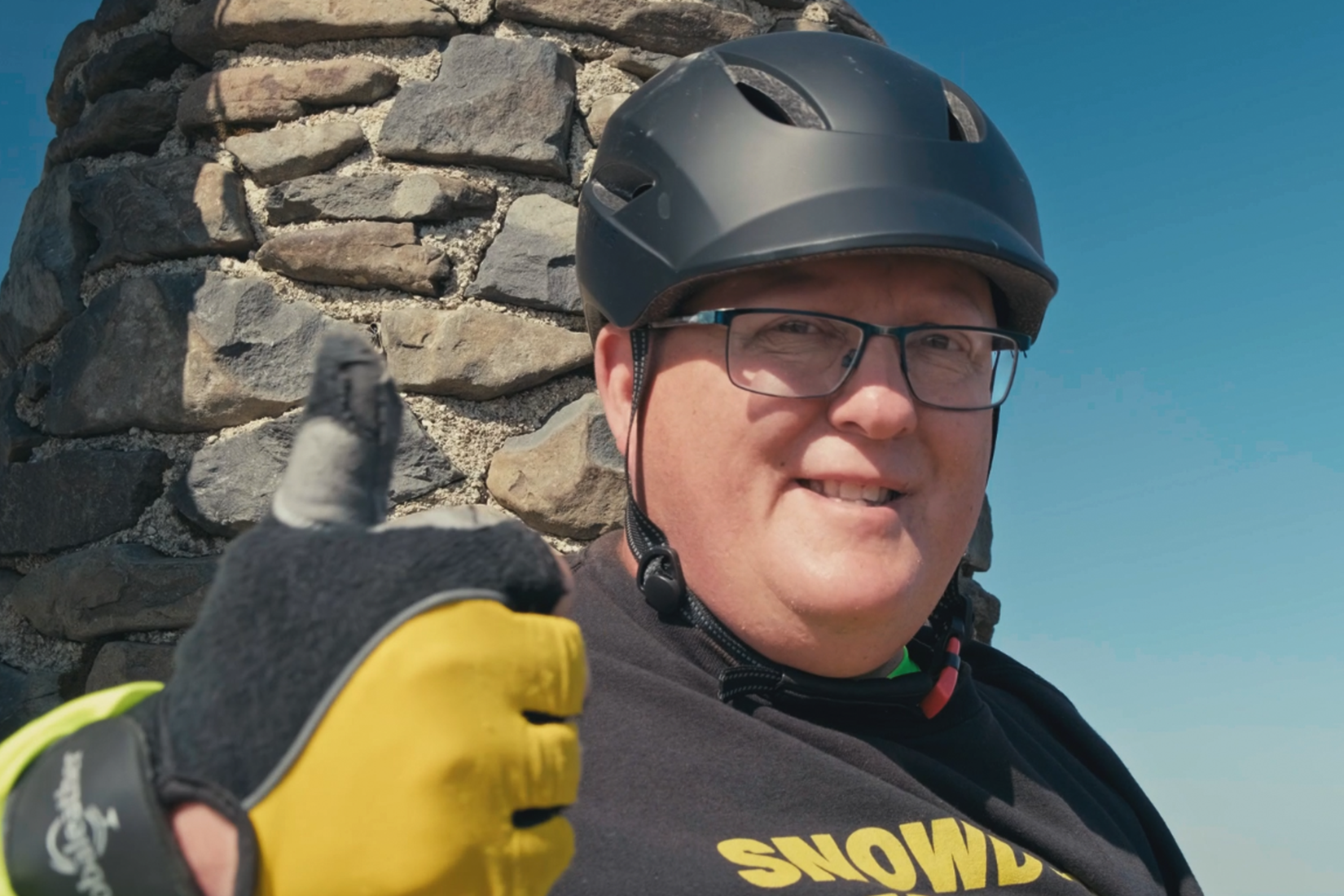Man with neurological condition ‘elated and emotional’ after summitting Snowdon
Ben Spencer summited and descended Snowdon in around 16-and-a-half hours on Wednesday.

Your support helps us to tell the story
From reproductive rights to climate change to Big Tech, The Independent is on the ground when the story is developing. Whether it's investigating the financials of Elon Musk's pro-Trump PAC or producing our latest documentary, 'The A Word', which shines a light on the American women fighting for reproductive rights, we know how important it is to parse out the facts from the messaging.
At such a critical moment in US history, we need reporters on the ground. Your donation allows us to keep sending journalists to speak to both sides of the story.
The Independent is trusted by Americans across the entire political spectrum. And unlike many other quality news outlets, we choose not to lock Americans out of our reporting and analysis with paywalls. We believe quality journalism should be available to everyone, paid for by those who can afford it.
Your support makes all the difference.A man with a neurological condition, which has left him “slowly becoming disabled”, has spoken of the elation he felt after summiting Snowdon and the hope that it raises awareness for the disease.
Ben Spencer has a progressive degenerative form of Ataxia, a neurological condition that affects his speech, balance, coordination and swallowing.
He summited and descended Mount Snowdon – the highest mountain in Wales – in around 16-and-a-half hours on Wednesday using a combination of a wheelchair, rollator and specially adapted walking sticks, describing the experience as “emotional”.
“I ended up having to crawl up the last lot of steps just to get to the top”, the 49-year-old who lives in Buckhurst Hill, Epping Forest, told the PA news agency.
“There was an Ordnance Survey marker at the top, so I sort of pulled myself up that and clung onto it for dear life.
“I felt really excited and I was really elated to get to the top – there were about 20 or 30 people that were waiting for me at the top and I didn’t know these people, but they all started clapping and cheering, so I got a bit emotional.”
While on the hike, he said he took around 100 selfies with people, and described the outpouring of support from people leaving comments and making donations on his JustGiving page – which has exceeded the £5,000 target – as “unbelievable.”
“I’m so insanely grateful for how the support is spreading awareness for Ataxia and it will enable Ataxia UK to continue supporting people like me and help more people understand the disease.”
Initially, Mr Spencer hoped to summit Snowdon for this 50th birthday in July, but thought doing it when he did would be his “last opportunity” because of the impact the condition is having on him.
“I’m basically reliant on my partner Richard to help me get to the local bus or tube station now”, he said.
“For me to get anywhere, it just takes a really long time now and that really hinders your activities.
“My legs are also terrible and I get exhausted really easily and I am now reliant on specially adapted tools to eat eg adapted spoons.”
He added that one of the “biggest problems” with Ataxia is potentially having to wait for years for a diagnosis.
“I’ve been seeing doctors on and off and the odd neurologist for about 15 years and it took about 15 years for me to get to the point where they diagnosed me with Ataxia because it kept getting mistaken for other things”, he said.
“I eventually got lucky and got a neurologist who knew all about it.”
To raise awareness of the everyday impact of Ataxia, Mr Spencer filmed how he travelled to Snowdon’s base camp to highlight how accessible the journey there is.
“To get here, we used a London Overground train, the London Underground, the Elizabeth Line, the West Coast Main Line to get to Bangor and a bus service here called the Sherpa Bus”, he said.
“We managed to do it all without me having to get out of the wheelchair, but it was still tough as there were multiple changes and we could not access certain stations, which would have made the journey faster.
“I’ve gone through a journey of slowly becoming disabled.”
Mr Spencer added that the climb also proved to be tricky because of having to navigate the different surfaces on the mountain, which left him having to switch between the equipment.
Planning for and training for the climb to make sure it was viable also involved using Streetview to try to access the gradient of the paths and look for obstacles, and ensuring enough people assisted Mr Spencer on the climb to make sure he had the resources he needed.
For people who may have Ataxia or are in the early stages of diagnosis, Mr Spencer said: “The biggest thing for me was reaching out to Ataxia UK and finding others with the condition because it’s only really those people who know how you feel.”
Ataxia UK CEO Sue Millman has commended Mr Spencer for taking on the challenge to raise awareness for the condition.
“We need as a charity and as a disability community to come together and press for everywhere to be accessible for everybody”, she added.
Mr Spencer’s fundraising page can be found here: https://www.justgiving.com/page/snowdon4ataxia